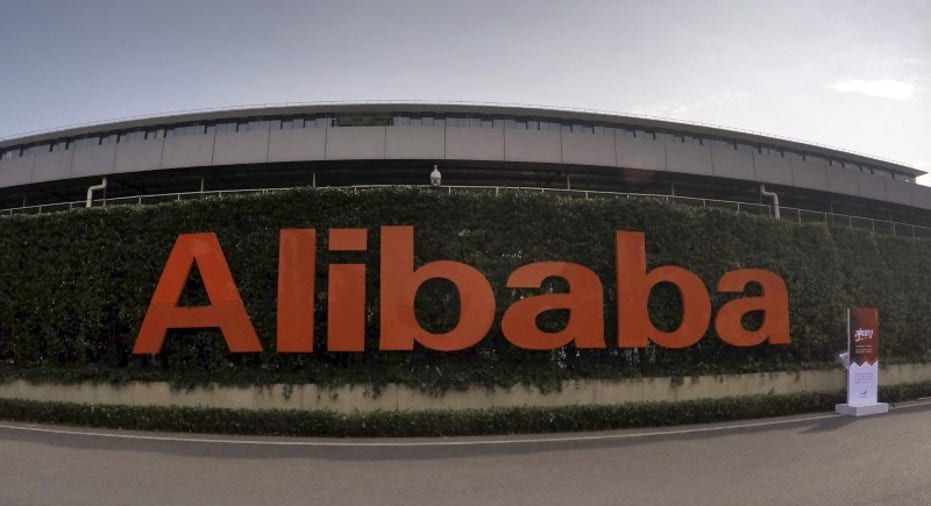Bigger than Black Friday, Alibaba's Singles Day faces fatigue in China

Millions of Chinese consumers will be glued to their smartphones Saturday, buying shoes, clothes, cosmetics and more in an annual shopping extravaganza known as Singles Day.
Yujing Liu won't be one of them.
"Singles Day really turns me off," says Ms. Liu, a professional translator in Beijing.
The 26-year-old has been bombarded in recent weeks with text messages on her phone and pop-up ads on her computer screen imploring her to place advance orders. "There is too much advertising, and deliveries are slow, " she says. "If there's anything I need, I make sure I buy it two to three weeks before the day."
Singles Day, which derives its name from the date Nov. 11, or 11/11, was originally conceived as a day for China's legions of unmarried young adults to celebrate their lack of attachments.
The day was unremarkable until 2009, when e-commerce giant Alibaba Group Holding Ltd. turned Singles Day into an online shopping event. It has since become the marquee event for the Chinese retail platform and a hallmark of the country's shopping calendar, setting new sales records each year. Last year, Alibaba said sales hit $17.8 billion, topping the $12.8 billion American consumers spent on the four days after Thanksgiving.
To reach new records each year, Alibaba has had to add new incentives, including pushing preorders, marketing games and creating fresh promotions.
But almost a decade in, Singles Day is starting to lose its cachet, according to a survey by marketing data firm AdMaster. Less than 65% of the consumers polled said they would participate in this year's Singles Day, versus 84% in 2015.
One reason: With everyone rushing to buy, deliveries after Singles Day can be slow, the survey found. Competing shopping festivals, including rival JD.com Inc.'s 18-day promotion in June, have also dimmed its appeal.
"Double 11 used to be special," says James Bay, managing partner of marketing and branding agency Possible, in Shanghai. "But if everyday is Christmas, then there is no value to December 25th."
An Alibaba spokesperson said the company has "record engagement" for Singles Day this year among shoppers and merchants, and its efforts to blend online shopping with physical stores are a driving factor.
Even so, Alibaba Chief Executive Daniel Zhang Alibaba acknowledged last week that the company needs to keep experimenting with retail technologies to meet customer needs.
The tech company is setting up pop-up shops in malls this year, allowing customers to try on lipstick in virtual mirrors and then order straight from a touch screen. Alibaba is also adding virtual fitting rooms, where consumers can upload photos of themselves and have clothing items superimposed on their picture.
Brands that sell on Alibaba's Tmall business-to-consumer site, meanwhile, are involved in their own one-upmanship, offering live-streaming celebrity endorsements and limited-edition products. France's L'Oréal SA is testing new vending machines, selling perfumes and moisturizers, in malls. Buyers scan a product's QR code and pay with their mobile phone. MAC Cosmetics plans to launch limited-edition makeup sets, sold exclusively on Tmall.
"The bar has definitely been raised for what you need to do to attract consumers," said Joe Nora, marketing director at Export Now, which helps brands including Victoria's Secret with their China e-commerce strategy. "A static display ad is going to be overlooked."
Alibaba will kick off Singles Day with a marathon stage show Saturday in Shanghai, featuring singers Pharrell Williams and Jessie J and tennis star Maria Sharapova. It will be telecast on three Chinese television stations and live-streamed on Alibaba's video service.
When the company reports its final tally at midnight, the U.S. Securities and Exchange Commission will likely be among those closely looking at the numbers.
Alibaba said in May 2016 the SEC was looking into the accounting methods for its Singles Day figures. The exact nature of the probe isn't clear, but critics have asserted that merchants selling on Singles Day have inflated their sales figures.
Alibaba has said it is cooperating with the SEC.
Xiao Xiao contributed to this article.



















